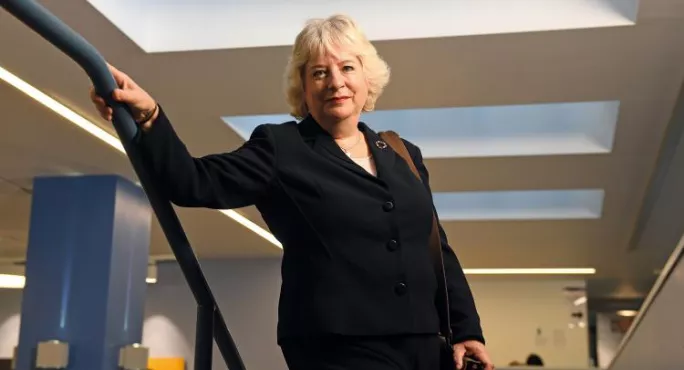- Home
- Teacher expertise should be in the DNA of every school
Teacher expertise should be in the DNA of every school

As chief executive of the Chartered College of Teaching, I was delighted to be asked to join the NAHT headteachers’ union’s accountability commission. I am fortunate in my role to have the opportunity to see the great work of our teachers first-hand. Despite the immense pressures they face, it is truly a mark of our outstanding teaching profession that the quality of education in England has risen so much over the past generation.
It is even more impressive when you consider the challenges our teachers endure. We are seeing one-in-10 teachers leaving the profession, a decline in the number of people joining and the workload of teachers increasing. If we are to ensure pupils receive the best education, then the whole of the teaching profession needs to work together.
This is something that is at the heart of the Chartered College’s vision. As the professional body for all teachers - from those setting out on their teaching career to senior leaders - sustained success comes from a united profession with everyone working together, collaborating and sharing best practice. Teaching expertise needs to run through the DNA of every single school.
Our Chartered Teacher status, CTeach, is already helping to raise the status of the profession. It provides teachers with the expertise and knowledge of pedagogy to support pupils, and celebrates the fantastic work happening in classrooms every single day. However, with the average teacher in England only spending four days on CPD a year, compared with the global average of almost 11, we are not equipping our teachers with the tools and the skills to shape their profession and be the best that they can be.
We are working to change this. Fostering an environment in which all staff have the opportunity to develop their professional learning starts at the very top of a school. We want everybody at every stage of their career to really be engaging with the big ideas in education. We don’t want teachers to have to just rely on what they were taught in their initial training.
At the same time, we want to ensure leaders and headteachers build their own knowledge about pedagogy to maximise the knowledge about good practice and evidence that their staff possess. A strong profession that is clear about optimal approaches to curriculum planning, leadership of learning and assessment will be better placed to resist fads and fear of others’ judgement.
Intelligent accountability
Changing the educational landscape to one of intelligent accountability, borne out of peer review and collegiality, requires system leadership from within the profession. That is why the recently launched leadership development advisory group is so important. We will be working with the NAHT, Association of School and College Leaders, National Governance Association, Teaching School Council and others to highlight evidence about the most effective ways to lead learning within schools. Through this group, we can begin to take forward some of the core recommendations of the commission.
The advisory group will review the professional knowledge, practice and behaviours from the chartered-teacher pilot and discuss with leaders how these could form the basis of enhanced profession-led headteacher standards. Confident, informed headteachers that work as part of a national professional community will be well placed to work with colleagues to develop a form of accountability that is both rigorous and intelligent.
The commission’s recommendations recognise that it is time for school leaders to make clear that our own expectations exceed those of any government or external inspection system. To be a professional is to be accountable to those we teach and to those we work with.
If we are to see the profession stepping up to own its own leadership standard, then we need the teaching profession to have the confidence to self-regulate its work and the expertise to do this effectively. As the commission states, it is the profession working together, discussing what does and doesn’t work, engaging with evidence and sharing good practice that will ultimately provide the best chance of success.
This is the opportunity to put in place something that would benefit the whole of the teaching profession. It’s an important step towards raising the status of the profession and encouraging a culture of lifelong learning, support and celebration. The Chartered College stands ready.
Dame Alison Peacock is chief executive of the Chartered College of Teaching
Keep reading for just £1 per month
You've reached your limit of free articles this month. Subscribe for £1 per month for three months and get:
- Unlimited access to all Tes magazine content
- Exclusive subscriber-only stories
- Award-winning email newsletters



